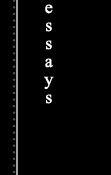



|
{the distraction junkies} jonathan bitz We are all distraction junkies. This is our new cholesterol. This is our new fat ass. From happy hour to derby parties to bicycle bar hops to dinners and concerts, we keep ourselves on the move. Really, in some kind of reverse inertia, this new fatty heroin - distraction - keeps us moving instead of sitting still. Television, the internet, our increasingly powerful phones is only feeding our obese hunger and addiction. Distraction is nothing more than an addiction. Princeton and Harvard researchers set-up six experiments testing this idea. Er, something like this. What researchers tested was the idea that fast thinking produces a sense of elation. That is, fast and varied thoughts produce elation. Fast and repetitive thoughts were found to produce anxiety. Rapid thinking induces the brain into releasing the novelty, pleasure and reward drug, dopamine. Certainly, this is crude: we are all drug addicts. Our lives are predicated on how/which drugs our brains give us and when. Still, we are all distraction junkies. We don’t like repetition. The complex word that we use to describe this dulling repetition is known to all: boredom. Boredom is a word that came about in England during the rise of the Industrial Revolution. It came from the infinitive, “to bore”, as with a slow, driving tool – to bore a hole. The importance of where boredom comes from is that it arose in the same space where the 8-hour workday was created: to legislate how we can spend our days. In a triad of 8-hours. It is because of this kind of compartmentalization, how it arose and how it has intertwined with technology that we makes us the special kind of distraction junkies that we are. Boredom rules. The reason we do much of what we do: go to the mall, watch films, listen to music, get dressed-up and go to dumb events – is to dodge the redundancy of time. That which is repetitive is dulling. Boring. And, dangerous. Here, life only begins to look like a series of escapes and attempts at self-gratification. Dangerous, no? This is why we sometimes have affairs, commit robberies, devise illegal schemes and become alcohol and drug addicts. Of course this kind of fleet feet approach to life has been glamorized by the silver screen, by novels and poems of all varieties. But standing still has also found its fair share of romantic literature. What happened to just fucking standing still? As the poet Joseph Brodsky wrote, “Boredom is your window on the properties of time that one tends to ignore to the likely peril of one's mental equilibrium. It is your window on time's infinity.” Yes, boredom can teach you a lesson. As Brodsky puts it: boredom can teach you “the lesson of your utter insignificance”. Our mortality and size is something that we deny most of our lives as we rustle from one event to another, one social engagement to the next – occupying any part of our mind that has to do with complex, higher thought. Or, if not that then we simply spend so much time employing all the arms of our lower, base cognitive functions so as to smear-out any aptitude that our drunken, drugged elevated mind has to give. Stand in your shit. Boredom will let you know that you stink. For once it breathes insignificance into your life’s mind it will then heighten your sense of emotional precision and humility. Believe it or not: our boredom is, actually, a profound state of emotional intelligence. As Brodsky wrote, “What's good about boredom, about anguish and the sense of meaninglessness of your own, of everything else's existence, is that it is not a deception.” Brodsky concludes his exposition, “In Praise of Boredom” by eloquently saying, “(A)s W. H. Auden said, ‘Believe your pain.’ This awful bear hug is no mistake. Nothing that disturbs you ever is.” |









